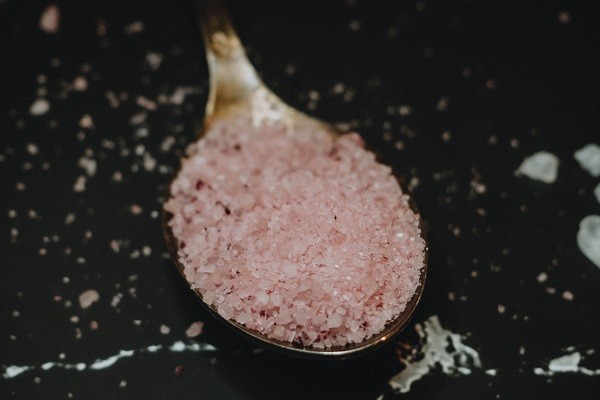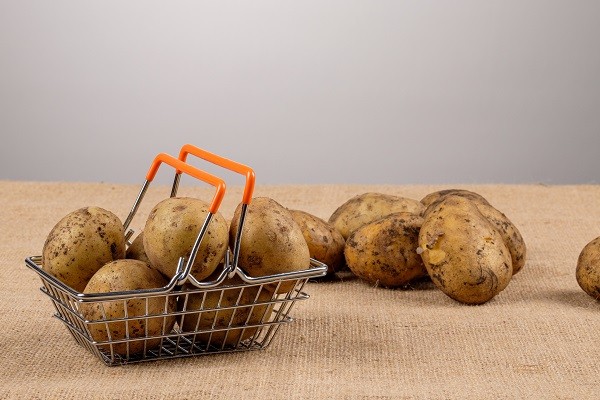How Much Salt per Day Is Ok for My Health?

Is salt bad for my health?
Firstly, to clarify salt and sodium; sodium is a naturally occurring mineral in salt. And the truth is, the suggestion is that salt is bad for you isn't as black and white as headlines suggest. Salt started becoming demonised in the early 1900s when doctors in France noticed that some of their patients that ate high-salt diets had high blood pressure.
Further epidemiological studies found the same thing (this is when scientists look at people's dietary intake and their illnesses and draw a link). And once the media and everybody got hold of that, it was printed as gospel.
But like everything in science, such things get challenged. Particularly when something as bold as "salt kills you" is stated courtesy of epidemiological studies, and not cause and effect research. "Correlation doesn't equal causation" you'll hear scientists say. On a simplistic level, this means that just because someone eats eggs for breakfast and later slips on the pavement, doesn't mean that eating eggs cause pavement slips.
And it took until 2003 for scientists to really challenge this notion, with a landmark review concluding:
“There is little evidence for long-term benefit from reducing salt intake.”
Then in 2011, a meta-analysis on sodium into more than 6250 subjects found no evidence supporting cutting salt as a strategy to reduce the risk of stroke, heart attack, or death in those with high or normal blood pressure. And then in 2015, further research found consuming less sodium might actually be associated with a higher risk of dying from heart disease.
So where did all the confusion come from?
Well, coming back to our eggs and slipping on the pavement example; the researchers found that those eating the most sodium were at a higher risk of these diseases anyway, and were also eating salt from foods that contained trans fats (not great for longevity at all). These people were in general, unhealthier (fatter, less active, and more prone to overeating).
Also, salt affects some of us differently. Researchers say we're either "salt-sensitive" or "salt-resistant individuals," and this obviously plays a critical role in the outcome of data.

Is potassium important for my health?
And with all the research came another interesting finding: potassium intake and its ratio to our sodium intake might be more important than the consumption of either nutrient.
The research found that those with the highest ratio of sodium to potassium intake were double the chance of dying from a heart attack and had a 50% larger chance of death than those with a lower ratio. Put simply, eating heaps of salt and little potassium isn't ideal. And that's the problem we have, as outlined by the British Medical Journal:
"The world's population consumes too much sodium and inadequate amounts of potassium."
How much salt and potassium should I eat each day?
Recommendations are to consume "less than 2000 mg sodium and at least 3510 mg potassium per person per day." So that's 2 grams of sodium per day (about one teaspoon of salt) and 3.5 grams of potassium per day.
But it's hard to get right because sodium is in the foods people might eat too much of, like takeaway meals and added seasonings! Potassium, on the other hand, is found in fruits and vegetables -- which some people don't always get enough of!
So, you can see where the problem is stemming from.
Here are some foods that are high in potassium that we can potentially eat more of:
- Avocado (~1 gram of potassium)
- Dark leafy greens (500 to 1,500 milligrams of potassium per cup)
- Beans (2 to 3 grams of potassium per cup)
- Squash (100 to 500 milligrams of potassium for medium-sized)
- Banana (400 to 500 milligrams of potassium for a medium-sized)
- Potato (~900 milligrams of potassium for medium-sized)
- Yoghurt (250 to 400 milligrams of potassium per cup)
- Mushrooms (300 to 400 milligrams of potassium per cup)

So, what can we make of all of this?
Some researchers declare the great salt debate as a draw, suggesting until more research comes to light, salt shouldn't be consumed in excess. And we're inclined to agree.
But the reality is, salt isn't as "unhealthy" as once believed. However, we should still study our favourite food labels to learn just how much 2 grams of sodium per day is, so we can commit this to memory and move forward. But the salt hysteria is another case of observational evidence creating concrete "truths" that fall apart upon strong examination.
We must focus on reaching current guidelines whilst ensuring we consume a nutritious diet and exercise regularly, whilst getting enough potassium from fruits and vegetables. Like everything, balance is key, and a holistic approach to health is better than totally removing something like sodium from our diets under shaky scientific findings.
Hopefully, more research will create even more clarity around sodium for the entire population.
References:
- DiNicolantonio JJ, O'Keefe JH. The History of the Salt Wars. Am J Med. 2017 Sep;130(9):1011-1014. doi: 10.1016/j.amjmed.2017.04.040. Epub 2017 May 22. PMID: 28545886.
- Drewnowski A, Rehm CD, Maillot M, et alThe feasibility of meeting the WHO guidelines for sodium and potassium: a cross-national comparison studyBMJ Open 2015;5:e006625. doi: 10.1136/bmjopen-2014-006625
- Ginter E, Simko V. New data on harmful effects of trans-fatty acids. Bratisl Lek Listy. 2016;117(5):251-3. doi: 10.4149/bll_2016_048. PMID: 27215959.
- Jürgens G, Graudal NA. Effects of low sodium diet versus high sodium diet on blood pressure, renin, aldosterone, catecholamines, cholesterols, and triglyceride. Cochrane Database Syst Rev. 2003;(1):CD004022. doi: 10.1002/14651858.CD004022. Update in: Cochrane Database Syst Rev. 2004;(1):CD004022. PMID: 12535503.
- Kalogeropoulos AP, Georgiopoulou VV, Murphy RA, Newman AB, Bauer DC, Harris TB, Yang Z, Applegate WB, Kritchevsky SB. Dietary sodium content, mortality, and risk for cardiovascular events in older adults: the Health, Aging, and Body Composition (Health ABC) Study. JAMA Intern Med. 2015 Mar;175(3):410-9. doi: 10.1001/jamainternmed.2014.6278. PMID: 25599120; PMCID: PMC4785822.
- Taylor RS, Ashton KE, Moxham T, Hooper L, Ebrahim S. Reduced dietary salt for the prevention of cardiovascular disease: a meta-analysis of randomized controlled trials (Cochrane review). Am J Hypertens. 2011 Aug;24(8):843-53. doi: 10.1038/ajh.2011.115. Epub 2011 Jul 6. PMID: 21731062.













































